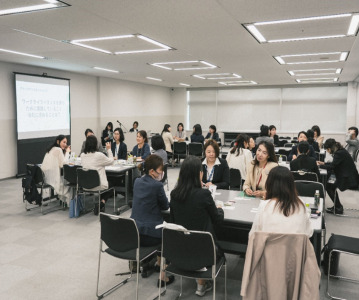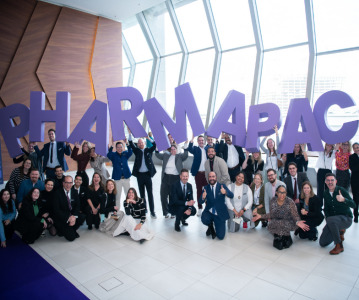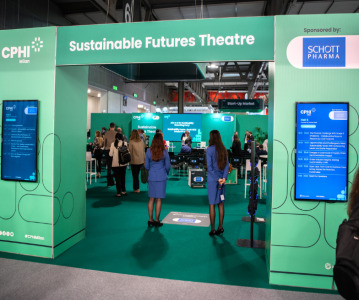Seattle Genetics highlights novel ADC technology advances at AACR

Innovative research demonstrates Seattle Genetics’ leadership in empowered antibodies.
Seattle Genetics has highlighted novel antibody-drug conjugate (ADC) technology advances presented at the 107th Annual Meeting of the American Association for Cancer Research (AACR) being held 16-20 April 2016 in New Orleans, LA. Data in multiple presentations demonstrate the company’s leadership and innovation in the field of ADCs. Presentations will showcase a new auristatin-based drug-linker as well as several novel linkers that expand Seattle Genetics’ proprietary ADC technology platform and may enable application of previously inaccessible cytotoxic payloads.
“We have a comprehensive scientific understanding of the multiple components necessary to develop antibody-drug conjugates for the potential treatment of hematologic malignancies and solid tumors,” said Jonathan Drachman, Chief Medical Officer and Executive Vice President, Research and Development at Seattle Genetics. “Our data presentations at the AACR Annual Meeting illustrate novel linker systems and cell-killing payloads as well as continued progress in understanding the chemical and biological properties of ADCs to inform potential future development. We believe ADCs will continue to play an increasingly important role in cancer treatment.”
ADCs are monoclonal antibodies designed to deliver cytotoxic agents selectively to tumour cells. Seattle Genetics has developed proprietary technology employing synthetic cytotoxic agents and stable linker systems that attach these cytotoxic agents to the antibody. Seattle Genetics’ linker systems are designed to be stable in the bloodstream and release the potent cell-killing agent once inside targeted cancer cells. This approach is intended to spare non-targeted cells and thus reduce many of the toxic effects of traditional chemotherapy while enhancing antitumour activity.
Related News
-
News Women in Pharma: Career Design for Women
Our monthly Women in Pharma series highlights the influential lives and works of impactful women working across the pharmaceutical industry, and how the industry can work towards making the healthcare industry and workplace more equitable and inclusive... -
News Pfizer may shift production back to US under Trump pharma tariffs
At the 45th TD Cowen annual healthcare conference in Boston, USA, Pfizer CEO Albert Bourla outlined the potential for Pfizer to shift its overseas drug manufacturing back to the US as pharmaceutical industry players weigh their options against Presiden... -
News Women in Pharma: Connecting accessible pharma packaging to patients – a Pharmapack Special
Throughout our Women in Pharma series, we aim to highlight how CPHI events encourage discussions around diversity, equity, and inclusion initiatives in the pharmaceutical industry. -
News CPHI Podcast Series: Packaging expert perspectives at Pharmapack 2025
This month's podcast episode sounds a little different, covering the latest event in Paris – Pharmapack 2025. Digital Editor Lucy Chard speaks to several experts direct from the floor of the show, bringing you right in on the action.&nbs... -
News Closing 2024 with Editors' picks of top articles from the past year
Coming to the end of 2024 and it’s certainly been a busy year, for CPHI and for the rest of the pharmaceutical and healthcare industry. Topics of conversation throughout the last 12 months have been varied, touching on the technical, to the polit... -
News SCHOTT Pharma’s sustainable journey with CPHI
Sustainability is of paramount importance in the pharmaceutical industry. See how a recent partnership between CPHI and SCHOTT Pharma has helped to highlight and accelerate their sustainability journey to reach global goals. -
News CPHI Podcast Series: Investing in a vision for the future of life sciences
In this episode Lucy Chard is joined by Rajiv Khatau to discuss the importance of looking into new therapeutic areas and some of the more niche areas of pharmaceuticals, and investing in the future of the industry. -
News Lessons from CPHI Milan 2024: Sunny Intervals for Pharma Manufacturing?
As the 2024 CPHI conference wrapped up in Milan, we caught up with L.E.K. Consulting – a global strategy consulting firm with deep expertise in pharma manufacturing – to discuss evolving market perspectives and business outlook.
Recently Visited
Position your company at the heart of the global Pharma industry with a CPHI Online membership
-
Your products and solutions visible to thousands of visitors within the largest Pharma marketplace
-
Generate high-quality, engaged leads for your business, all year round
-
Promote your business as the industry’s thought-leader by hosting your reports, brochures and videos within your profile
-
Your company’s profile boosted at all participating CPHI events
-
An easy-to-use platform with a detailed dashboard showing your leads and performance







